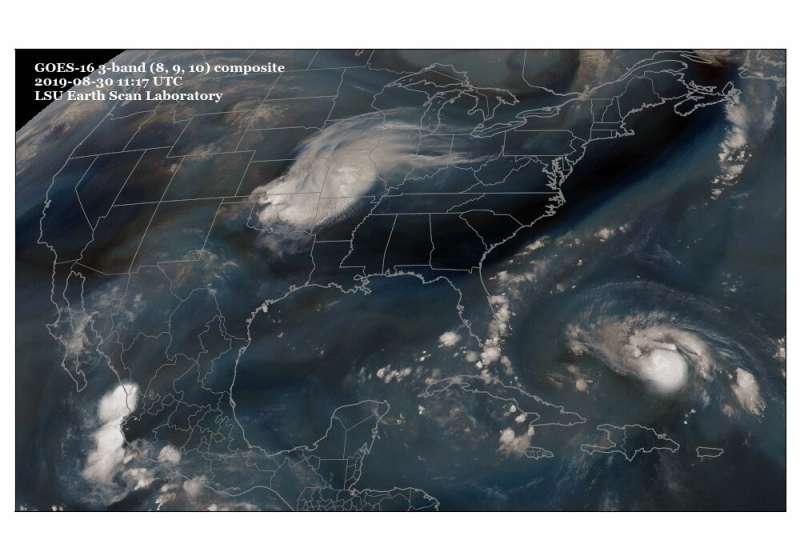How hurricanes can affect weather after landfall

After a hurricane has made landfall and moved through a community, it can affect the weather in the following weeks and months, said LSU Department of Oceanography & Coastal Sciences Assistant Professor Paul Miller based on new research he conducted in the aftermath of Hurricane Maria in Puerto Rico.
Here are a few reasons why and how:
- Humidity can decrease without leaves, which hold moisture.
- Without the leaves and trees to "sweat," which cools the surface, the air temperature can rise.
- Without tree foliage and vegetation to disperse a heavy rain, communities may be more prone to flash flooding in the days or weeks after a hurricane.
- Additionally, the high discharges in rivers and streams leads to large sediment plumes in the ocean that muddy the water and may affect shrimpers, fisherman and the seafood industry
Miller's areas of expertise include coastal meteorology, hydroclimatology, weakly forced thunderstorms, land-atmosphere interactions and hazardous weather impacts. He is available for media interviews upon request.
More information: Paul Miller's Lab website: faculty.lsu.edu/paulmiller/.
Provided by Louisiana State University




















